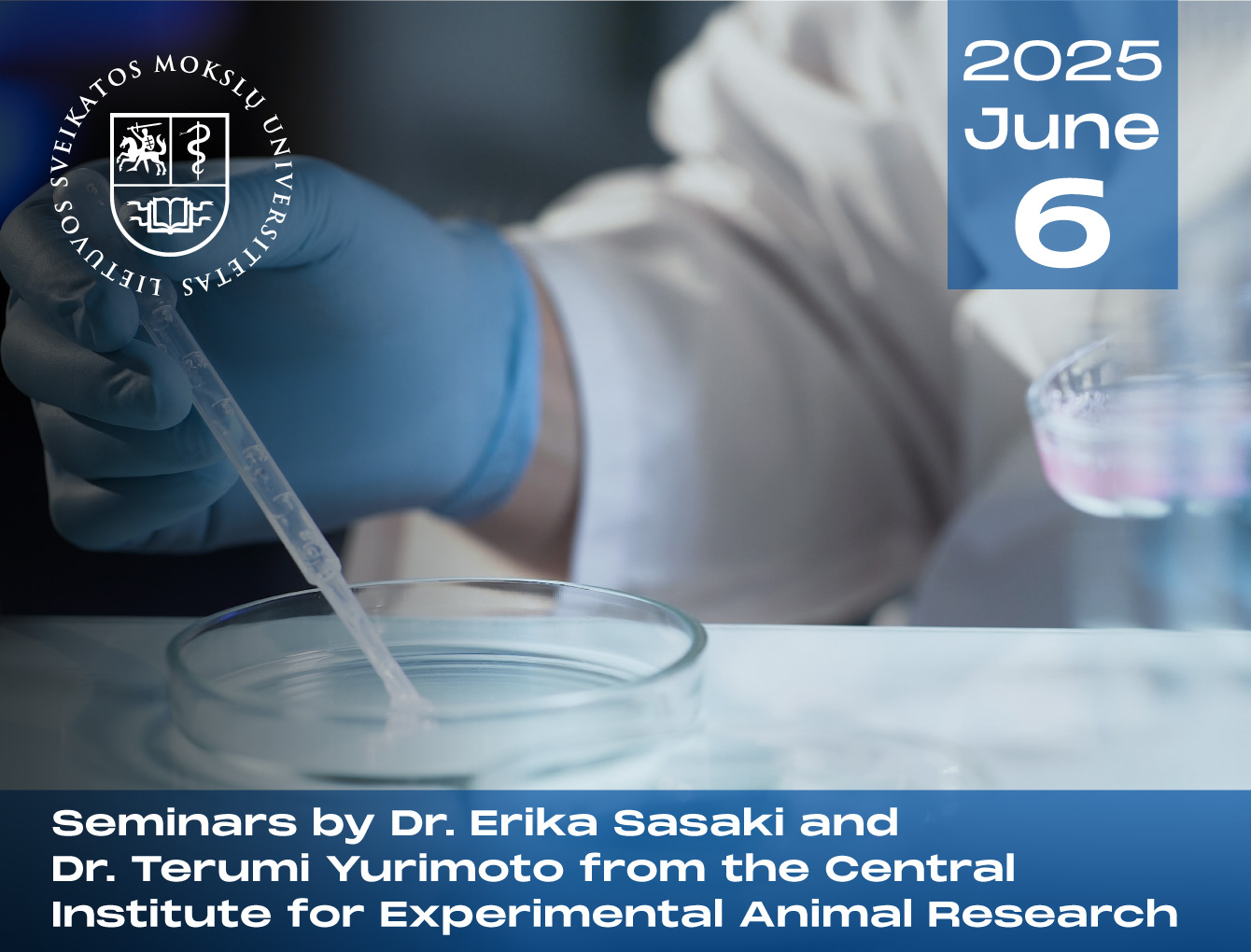Seminars by Dr. Erika Sasaki and Dr. Terumi Yurimoto from the Central Institute for Experimental Animal Research
< Back
We invite the University community to attend seminars by Dr. Erika Sasaki and Dr. Terumi Yurimoto from the Central Institute for Experimental Animal Research, which will take place on June 6 in Room 203 of the Faculty of Pharmacy.
A renowned Japanese scientist, Prof. Makoto Suematsu, will also participate in the lectures. He is the former long-time head of the Japan Agency for Medical Research and Development. Currently, he leads the Central Institute for Experimental Animal Research and serves as the Head of the Department of Biochemistry at Keio University School of Medicine.
09:30 – 10:30
Dr. Erika Sasaki’s seminar: “Development of Non-Human Primate Models of Alzheimer’s Disease Using Genome Editing”
Erika Sasaki is an internationally recognized expert in reproductive and developmental biology with over 25 years of experience. She is one of the leading specialists in marmoset genetics and, in 2009, became the first in the world to produce a transgenic marmoset. Currently, she is developing genetically modified marmoset models for disease research, especially in the fields of Alzheimer’s and regenerative medicine. Her work includes creating immunodeficient marmosets and exploring the potential of stem cells for generating chimeric animals. She actively promotes marmoset research and is a member of several scientific organizations in Japan and the Asia-Oceania region.
10:30 – 11:00
Dr. Terumi Yurimoto’s seminar: “Development of Non-Invasive Analysis Methods for Alzheimer’s Disease Models Using Marmosets”
Terumi Yurimoto is a researcher in laboratory animal and veterinary science, specializing in non-human primates. He develops non-invasive tools for phenotypic analysis of marmosets, widely used as disease models. He has created an AI-based behavioral analysis system and a non-surgical head-holding device, both enabling advanced studies such as fMRI and phenotype analysis of marmosets with PSEN1 mutations, contributing to a deeper understanding of disease progression.
